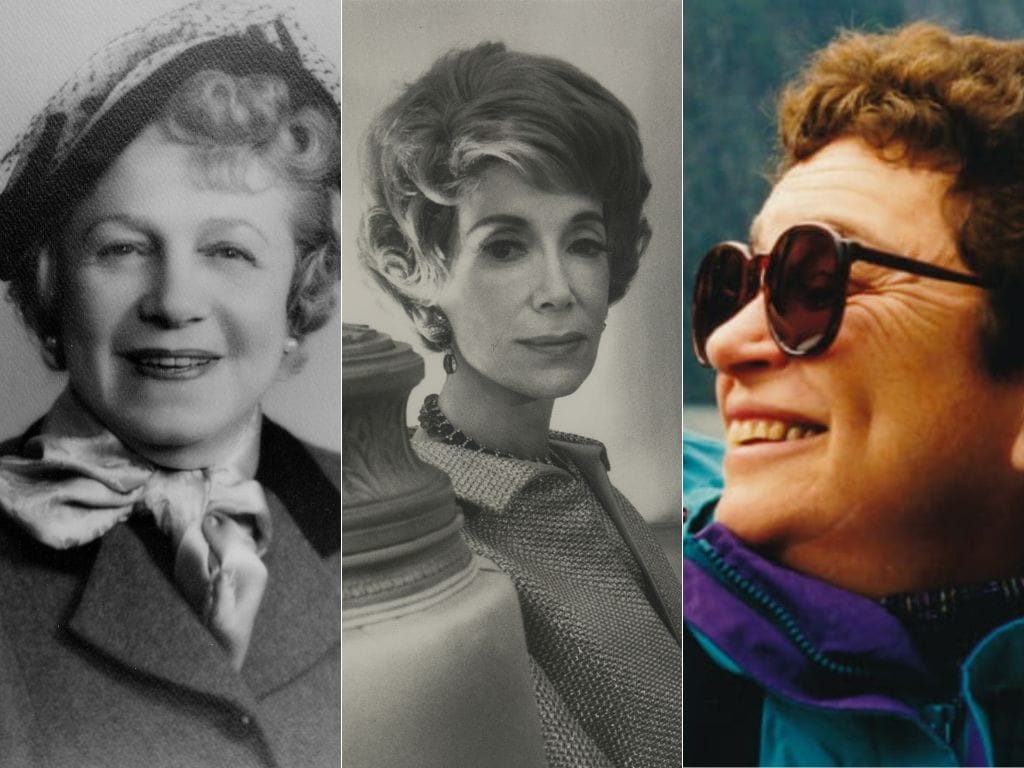In 1958, Vivian Beaumont Allen gave $3 million (equivalent to more than $32 million today) to Lincoln Center for the Performing Arts towards the construction of the venue that has since become Lincoln Center Theater’s crown jewel: the Vivian Beaumont Theater. Of the 41 Broadway venues, the Beaumont is one of just five that was named for a woman. But at Lincoln Center Theater (LCT), it is one of three performance spaces — of three — named for women, along with Off-Broadway’s Mitzi E. Newhouse and Claire Tow Theaters. Today, the intention of these namesake women runs through the fabric of the theatrical complex, the artists it employs and the art it showcases on these stages.

When Beaumont Allen first made her large donation, she envisioned that the theater at Lincoln Center would be home to a repertory company. From ages five to 16, she traveled across Europe with her parents — not receiving a formal education. In her adulthood, she saw to it that she made up for her missed studies, but she didn’t need to make up for taste. She had fallen in love with European repertory theaters and the serious plays they presented.
“She wanted theater to leave you fulfilled or bring out an emotional response,” her great-grandson Ian MacLean told Broadway News. Though Beaumont Allen passed away in 1962 before the theater was complete, in 1963, when it opened, the Beaumont Theater hosted nine seasons for the Repertory Theater of Lincoln Center. From 1973 to 1977, Joe Papp ran his Shakespeare Festival there, before a new resident company was founded in 1979. But it was short-lived due to financial difficulties. The troupe presented one season (1980-1981) before the theater at Lincoln Center had to determine a new course.
Cut to present day. During a private ceremony before LCT’s 2024 gala, board chair emerita Linda LeRoy Janklow recalled how she encouraged former Mayor John Lindsay to buy into the idea of the organization. And back in 1985, LCT as we know it began under the direction of Gregory Mosher, executive producer Bernard Gersten and board chair Lindsay. Over the past 40 years, the Beaumont hasn’t been a repertory theater, but it has presented the kind of work that its backer envisioned, according to her descendants.
MacLean referred to LCT’s fall 2024 offering “McNeal” as the kind of play his great-grandmother would have been proud to associate with her name. “There are a lot of feelings to process in ‘McNeal’ while sitting in the audience — let alone the actors — but that is why I think ‘McNeal’ is such a great example of her [legacy].”
“A good play is such a refreshing thing,” Beaumont Allen told the New York Times in its 1958 reporting of her gift to Lincoln Center. “And I don’t mean the unpleasant plays of Tennessee Williams. And why would anybody put on such a dreadful thing as Molière’s ‘Medecin Malgré Lui’? ‘The Diary of Anne Frank’ is my idea of a beautiful play. And ‘The Music Man’ was cheerful and enjoyable, although nothing great.”


























































